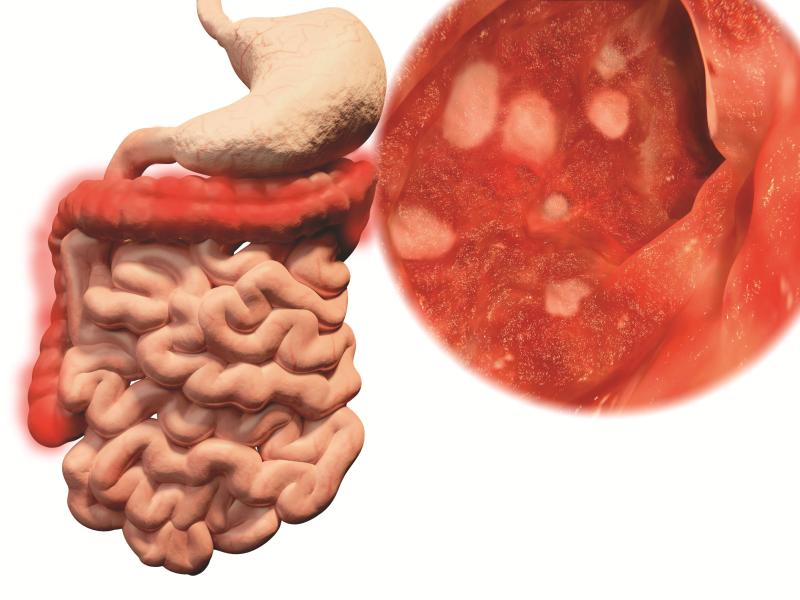
A new class of orally administered drugs has been included in the armamentarium of treatment for ulcerative colitis (UC), according to a recent study, which reports the effectiveness of Janus kinase (JAK) inhibitors, particularly tofacitinib.
“However, more studies are needed to ascertain the safety of tofacitinib in the long term and whether other compounds of this class may be equally effective,” the authors said.
An extensive literature search was conducted to identify studies examining the effects of JAK inhibitors for the treatment of patients with UC.
Tofacitinib, which was recently approved in Europe for the treatment of moderate-to-severe UC, was the more extensively studied drug in this setting.
Evidence suggested the effectiveness of this drug in terms of achieving clinical and endoscopic remission in UC patients who were unresponsive to other treatments, even in those previously treated with biologic therapies. Tofacitinib was also found to significantly improve the quality of life of these patients.
In addition, still a few data were available for the treatment of UC using other JAK inhibitors.
UC is commonly treated with aminosalicylates, corticosteroids and immunosuppressants, as well as biologic drugs when the former therapies are ineffective. However, primary or secondary loss of response occurs in a substantial portion of patients undergoing treatment with biologic agents, according to the authors.
“Thus, new therapeutic options are be[ing] actively explored; among these, there is interest in JAK inhibitors, small molecules that can be administered orally,” they added.